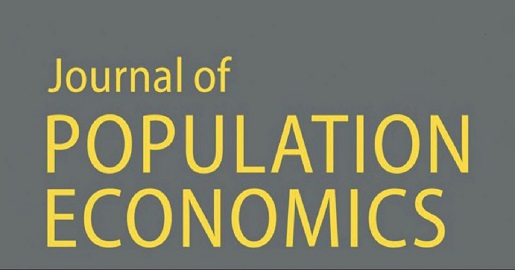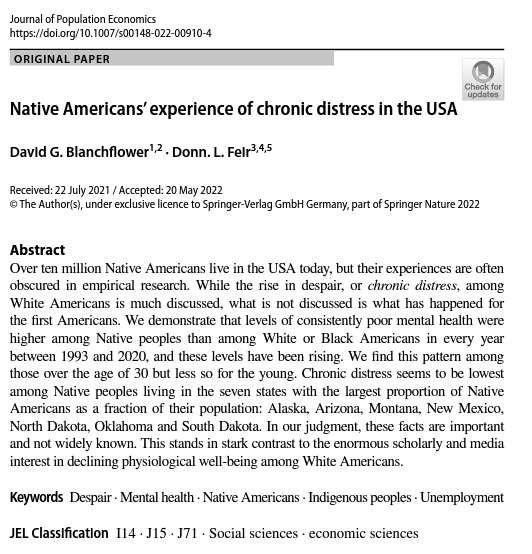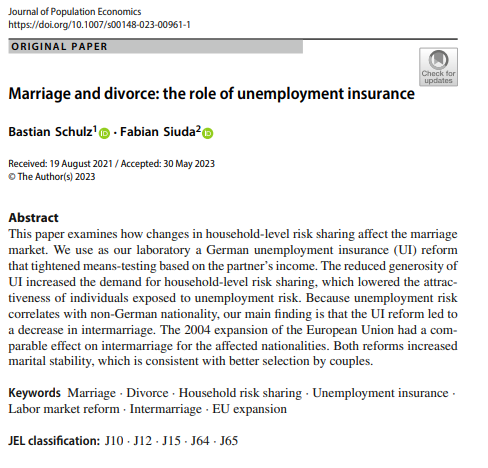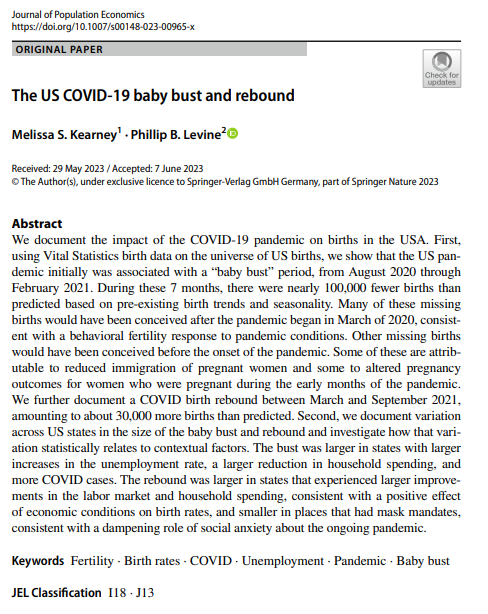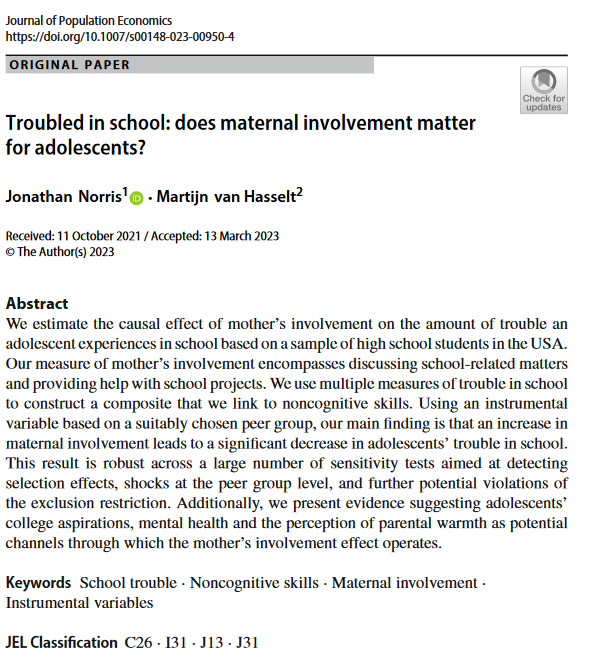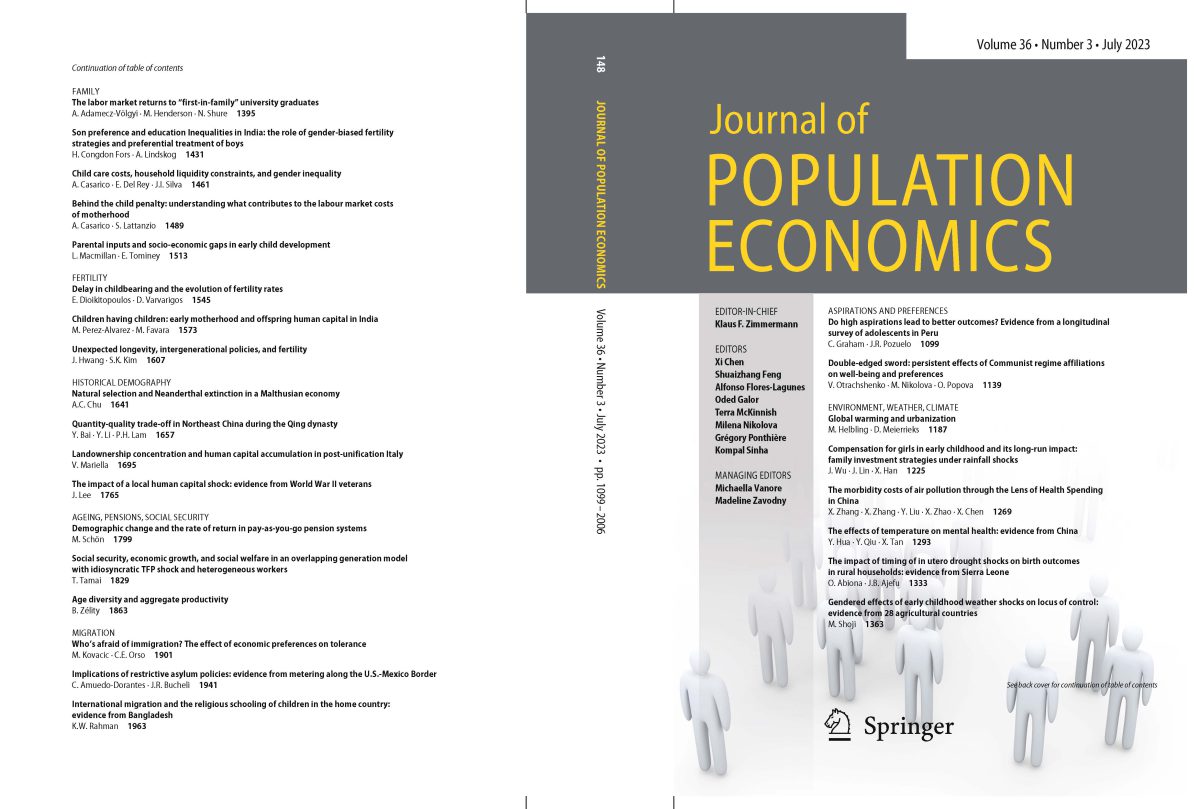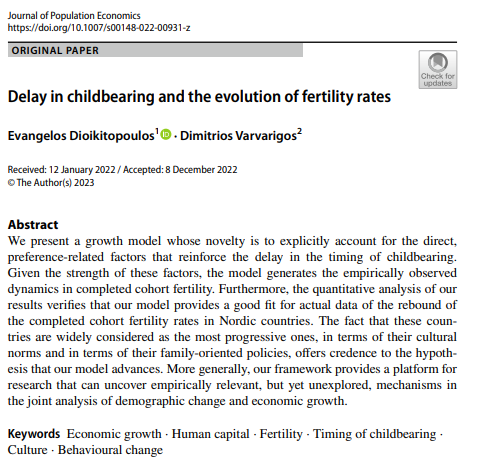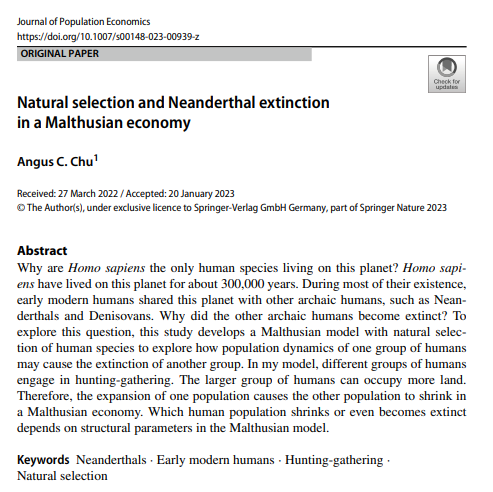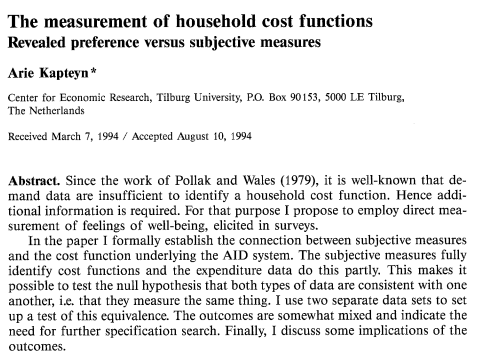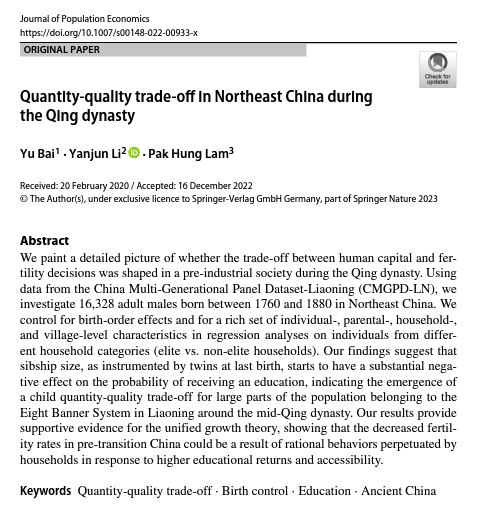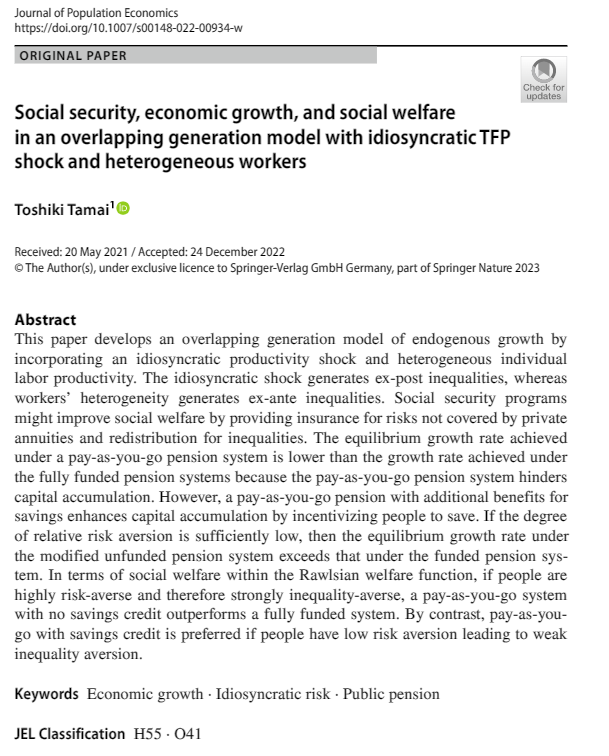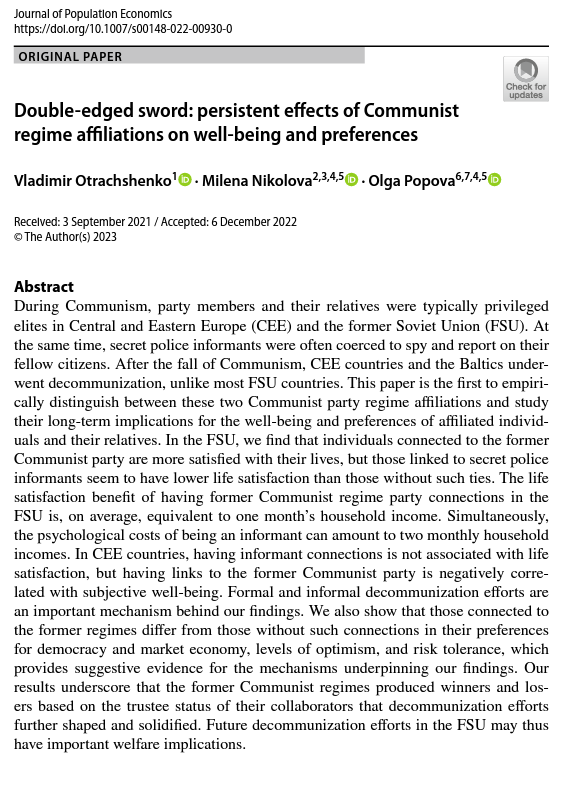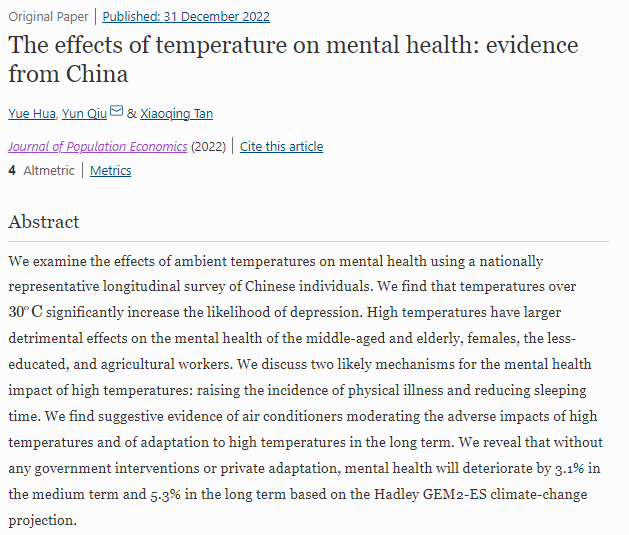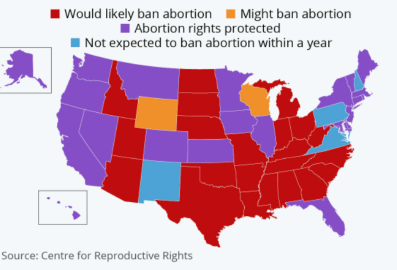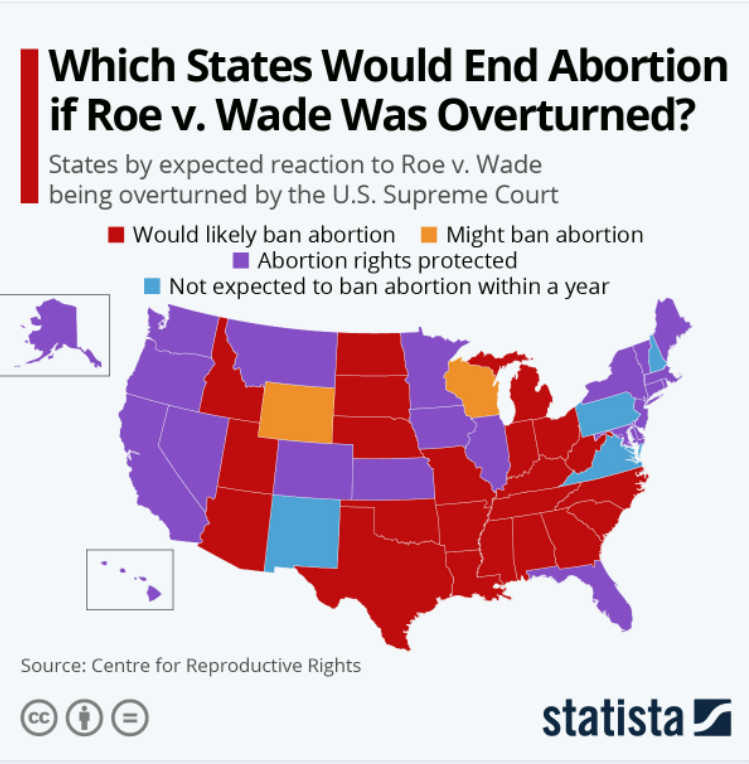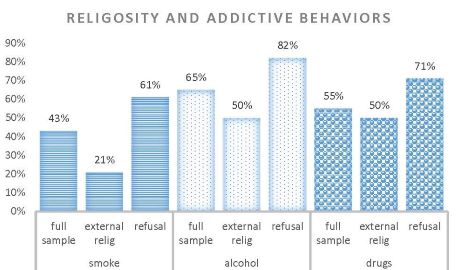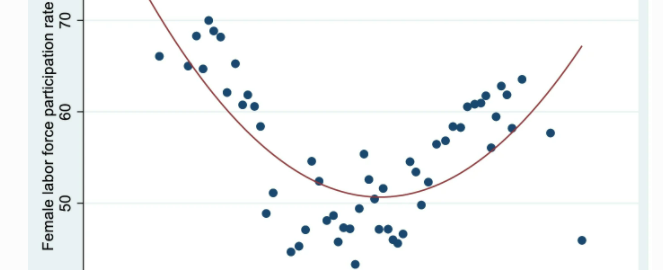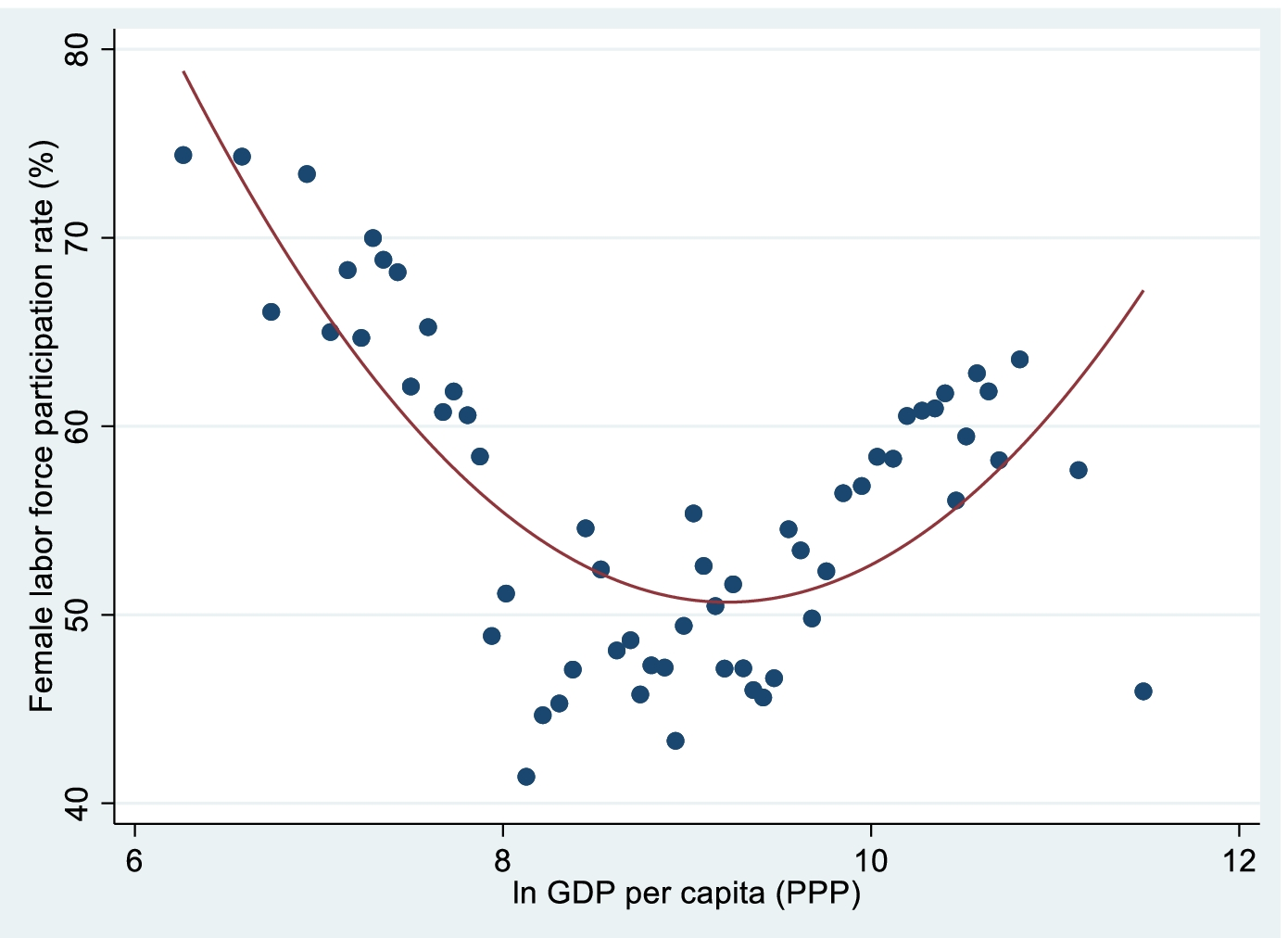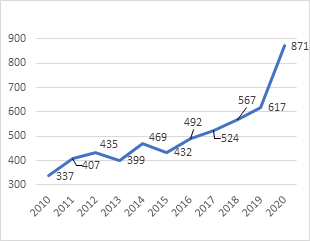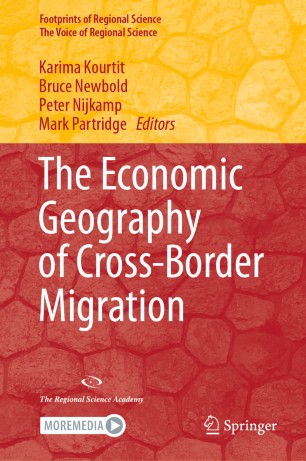The Journal of Population Economics (JOPE) has recently accepted 26 articles for publication in its upcoming Volume 37, Issue 1 (2024). These articles are currently in production and are scheduled to be published soon. A comprehensive overview of their key findings will be presented by the authors during an online GLO – JOPE workshop scheduled for February 26-27, 2024. Specific details regarding the workshop will be communicated in due time. The paper abstracts, titles and author names are listed below.
Effective since January 1, 2024, JOPE has transitioned to a Continuous Article Publishing (CAP) model. Under this new approach, all accepted articles will be directly published in the ongoing issue, bringing an end to the previous backlog policy. To facilitate this shift, JOPE published all available articles last year, successfully clearing the backlog. Notably, of the 90 articles included in JOPE issues in 2023, only 45 were accepted in the past year, and the other 45 were from previous years.
This policy change addresses the confusion surrounding the publication status of online articles, now widely recognized as published. When included in a journal issue with delay because of a backlog, this created two publication dates in the past practice.
Additionally, the policy change reflects JOPE’s commitment to expeditious publishing. The decision to organize the online GLO – JOPE workshops aligns with JOPE’s effective communication strategy, aimed at disseminating significant research findings in time to a broader audience within academia and society.
Articles accepted for publication in the Journal of Population Economics.
1. David G Blanchflower, Alex Bryson: The Female Happiness Paradox
Using data across countries and over time we show that women have worse mental health than men in negative affect equations, irrespective of the measure used – anxiety, depression, fearfulness, sadness, loneliness, anger – and they have more days with bad mental health and more restless sleep. Women are also less satisfied with many aspects of their lives, such as democracy, the economy, the state of education and health services. They are also less satisfied in the moment in terms of peace and calm, cheerfulness, feeling active, vigorous, fresh and rested. However, prior evidence on gender differences in happiness and life satisfaction is less clear cut. Differences vary over time, location, and with model specification and the inclusion of controls, especially marital status. We now find strong evidence that males have higher levels of both happiness and life satisfaction in recent years even before the onset of pandemic. As in the past women continue to have worse mental health. A detailed analysis of several data files, with various metrics, for the UK confirms that men now are happier than women and the size of the effect is not trivial.
2. Jeehoon Han, Caspar Kaiser: Time Use and Happiness: US Evidence Across three Decades
We use diary data from representative samples from the United States to examine determinants and historical trends in time-weighted happiness. To do so, we combine fine-grained information on self-reported happiness at the activity level with data on individuals’ time use. We conceptually distinguish time-weighted happiness from evaluative measures of wellbeing and provide evidence of the validity and distinctiveness of this measure. Although timeweighted happiness is largely uncorrelated with economic variables like unemployment and income, it is predictive of several health outcomes, and shares many other determinants with evaluative wellbeing. We illustrate the potential use of time-weighted happiness by assessing historical trends in the gender wellbeing gap. For the largest part of the period between 1985 and 2021, women’s time-weighted happiness improved significantly relative to men’s. This is in stark contrast to prominent findings from previous work. However, our recent data from 2021 indicates that about half of women’s gains since the 1980s were lost during the Covid-19 pandemic. Hence, as previously shown for several other outcomes, women appear to have been disproportionally affected by the pandemic. Our results are replicable in UK data, and robust to alternative assumptions about respondents’ scale use.
3. Enghin Atalay: A Twenty-First Century of Solitude? Time Alone and Together in the United States
This paper explores trends in time alone and with others in the United States. Since 2003, Americans have increasingly spent their free time alone on leisure at home and have decreasingly spent their free time with individuals from other households. These trends are more pronounced for non-White individuals, for males, for the less educated, and for individuals from lower-income households. Survey respondents who spend a large fraction of their free time alone report lower subjective well-being. As a result, differential trends in time alone suggest that between-group subjective wellbeing inequality may be increasing more quickly than previous research has reported.
4. Philippe Sterkens, Stijn Baert, Eline Moens, Joey Wuyts, Eva Derous: I Won’t Make the Same Mistake Again: Burnout History and Job Preferences
The burnout literature has focused on the determinants of burnout, whereas its careers consequences remain understudied. Therefore, we investigate whether recently burned-out individuals differ in job preferences from non-burned-out workers. We link these differences in preferences with (1) perceptions of job demands and resources, as well as (2) the weighting of such perceptions. To this end, a sample of 582 employees varying in their history of burnout judged job offers with manipulated characteristics in terms of their willingness to apply as well as perceived job demands and resources. We find that recently burned-out employees appreciate possibilities to telework and fixed feedback relatively more, while being relatively less attracted to learning opportunities. These findings can be partially explained by differences in the jobs’ perceived resources.
5. Claudia Senik, Andrew E. Clark, Conchita D’Ambrosio, Anthony Lepinteur, Carsten Schröder: Teleworking and Life Satisfaction in Germany during COVID-19: The Importance of Family Structure
We carry out a difference-in-differences analysis of a real-time survey conducted as part of the German Socio-Economic Panel (SOEP) survey and show that teleworking had a negative average effect on life satisfaction over the first two years of the COVID-19 pandemic. This average effect hides considerable heterogeneity, reflecting gender-role asymmetries: lower life satisfaction is found only for unmarried men and for women with school-age children. The negative effect for women with school-age children disappears in 2021, suggesting adaptation to new constraints and/or the adoption of coping strategies.
6. Davide Furceri, Pietro Pizzuto, Khatereh Yarveisi: The Effect of Pandemic Crises on Fertility
This paper examines the dynamic effects of pandemic crises on fertility rates for a large, unbalanced sample of 182 developed and developing countries during the period 1996-2019. We find that major pandemics are associated with significant and persistent declines in fertility rates of about 2 percent, on average. These effects are significantly larger for pandemics characterized by a very large number of confirmed cases relative to the population (up to 6½ percent) and by deep recessions (up to 5 percent). In addition, the effects are larger in advanced economies (up to 5 percent) and for younger women, on average.
7. Catalina Amuedo-Dorantes, Cristina Borra, Chunbei Wang: Asian Entrepreneurship in the Coronavirus Era
The COVID-19 pandemic has had a deleterious impact on the world economy. Studies have documented the disproportional impact of the pandemic on minorities, immigrants, and business owners in the United States. In this study, we use Current Population Survey monthly data spanning from January 2014 through December 2021 to examine how the COVID-19 pandemic affected Asian entrepreneurship. We show that the pandemic disproportionally hurt Asian entrepreneurship, particularly among immigrants, up until the end of 2020. A detailed analysis of Asian business dynamics reveals a substantial increase in self-employment exits during the first year of the pandemic. We fail to find convincing evidence of differential industry/job-type concentration, individual preferences, majority-minority disparities, narrower clientele, or differential access to government support as primary drivers for such patterns. Instead, we find suggestive evidence of discrimination playing a non-negligible role that subsided in 2021, coinciding with the rollout of vaccines.
8. Riccardo Ciacci: Banning the Purchase of Sex Increases Cases of Rape: Evidence from Sweden
This paper leverages the timing of a ban on the purchase of sex to assess its impact on rape offenses. Relying on Swedish high-frequency data from 1997 to 2014, I find that the ban increases the number of rapes by around 44%–62%. The results are robust to several econometric specifications that exploit different identification assumptions. The increase reflects a boost in completed rapes both in the short- and long run. However, it is not accompanied by a decrease in the number of pimps. Taken together, the empirical evidence hints at the notion that the rise in rapes is not connected to the supply of prostitution but rather to changes in the demand for prostitution due to the ban. The results here have the opposite sign but larger magnitudes in absolute value than results in the literature on the decriminalization of prostitution.
9. Veronica Grembi, Anna Rosso, Emilia Barili: Domestic Violence Perception and Gender Stereotypes
Using a survey of more than 4,500 Italian women, we address the link between gender stereotypes and perceptions of domestic violence. We define a new measure of stereotypes at the individual level and show that women with stronger stereotypes are less likely to state that violence is common in their area of residence and are more likely to classify physical violence as less severe than privacy breaches. This ranking is associated with a victim-blaming mindset among respondents with stronger stereotypes, who are also more li(e.g., economic distress) than to personal characteristics of abusers (e.g., psychological issues) and to advise a hypothetical victim not to react to violence.
10. Stanislao Maldonado: Empowering Women through Multifaceted Interventions: Long-term Evidence from a Double Matching Design
Empowering women is a policy goal that has received a lot of interest from policy-makers in the developing world in recent years, yet little is known about effective ways to promote it sustainably. Most existing interventions fail to address the multidimensional nature of empowerment. Using a double matching design to construct the sampling frame and to estimate causal effects, I evaluate the long-term impact of a multifaceted policy intervention designed to improve women’s empowerment in the Atlantic region in Colombia. This intervention provided information about women’s rights, soft skills and vocational training, seed capital, and mentoring simultaneously. I find that this intervention has mixed results: there are improvements in incomes and other economic dimensions along with large political and social capital effects, but limited or null impacts on women’s rights knowledge and control over one’s body. Using a list experiment, I even find an increase in the likelihood of intra-household violence. The results highlight the importance of addressing the multidimensional nature of women’s empowerment in policy innovations designed to foster it and incorporating men in these efforts.
11. Jinglin Wen: Female Chief Officers and Crime: Evidence from England and Wales
I study the impact of the appointment of female chief police officers on crimes typically committed against females: sexual and rape offenses. Evidence suggests that adding more female chief officers leads to a statistically significant increase in documented sexual crimes in England and Wales. Yet, this rise is good news because it is due not to a rise in actual crimes committed or improved police recording practices but, rather, to more reporting of sexual crimes. I also find that appointing a female chief officer is associated with a reduction of around 1.1 homicides against women, which is equivalent to 21 percent of the mean value. Exploration of mechanisms suggests that the reduction may reflect an increase in policing resources devoted to women’s protection.
12. Li Zhou; Zongzhi Liu; Xi Tian: Threat Beyond the Border: Kim Jong-un’s Nuclear Tests and China’s Rural Migration
Between 2006 and 2017, North Korea conducted six nuclear weapons tests near its border with China, which clearly posed an existential threat to China. Utilizing data from a representative sample of rural households and adopting a quasi-experimental framework, this study analyzes the effects of human-made nuclear threats on the coping strategies of China’s rural households living on the border with North Korea. Our results show that nuclear tests have sizable causal effects on different aspects of non-farm employment and land rented out by rural residents in the border area of China. It is particularly noteworthy to emphasize that the results of this study demonstrate that, due to the human-made radiation risk resulting from North Korean nuclear tests, households in the border regions of China bordering North Korea increase labor out migration and land lease out. Multiple robustness tests consistently support this conclusion. Next, the paper attempts to identify various mechanisms behind these effects, such as the nuclear risk’s effect on the village’s economic viability, ultimately leading households to move out. We also find that the impact of moving away from rural areas due to nuclear tests is more pronounced for households with higher human capital, higher income, and a lower proportion of elderly family members. In conclusion, as rural households respond to nuclear threats by migrating out, North Korea’s nuclear tests exacerbate the phenomenon of rural hollowing in China’s border regions.
13. Xuechao Qian: Revolutionized Life: Long-term Effects of Childhood Exposure to Persecution on Human Capital and Marital Sorting
This paper investigates the effects of early-life exposure to persecution risk on human capital formation and marital sorting, while also analyzing how these effects are influenced by the timing of the exposure during early life. Utilizing the context of China’s “class struggle” period, which targeted various classes including landlords, capitalists, and intellectuals, this study demonstrates that individuals who experienced persecution risk during their childhood exhibit lower formal education attainment, reduced cognitive skills, and lower earnings. They are more likely to form marriages with individuals from classes that were previously favored by the regime but have comparatively lower human capital outcomes. Moreover, the study highlights that the most substantial and enduring impacts occur when the exposure to class struggle persecution risk takes place during early childhood.
14. Olivier Charlot, Claire Naiditch, Radu Vranceanu: Smuggling of Forced Migrants to Europe: A Matching Model
This paper develops a matching model to analyze the smuggling market for forced migrants, building on the empirical evidence related to the smuggling of migrants from the Horn of Africa and the Middle East to Europe in the last decade. Comparative statics for the equilibrium solution reveal that coercion-based measures targeting the smugglers reduce the number of irregular migrants and smugglers at the expense of migrants’ overall welfare. Slightly increasing legal migration opportunities has the interesting feature of reducing irregular flows, without deteriorating migrants’ welfare or increasing the total number of migrants. An extremely restrictive asylum policy has similar effects in terms of the flows of irregular migrants as a quite loose one, with the largest flows of irregular migrants occurring under a “middle-range” policy.
15. Federico Maggio, Carlo Caporali: The Impact of Police Violence on Migration: Evidence from Venezuela
This study unveils the causal effect of authoritative violence on individuals’ likelihood to migrate. Specifically, we examine the migration patterns of Venezuelans during the 2017-2018 political and economic crisis. We draw insights from regional-level data on civilian casualties caused by security forces, along with information extracted from the ENCOVI-2018 survey data that captures migration flows. The estimates rely on travel time from the capital city as an instrumental variable and are robust to the inclusion of several household and socio-economic regional-level characteristics. The findings strongly suggest that authoritative violence is a significant non-economic push factor for international migration. Moreover, additional evidence indicates that this type of violence influences the skill composition of migrants, especially in the context of South-to-South migration flows.
16. Guanchun Liu, Yuanyuan Liu,Jinyu Yang, Yanren Zhang: Labor Contract Law and Inventor Mobility: Evidence from China
This paper investigates the causal effect of employment protection on inventor mobility. Taking the enactment of China’s Labor Contract Law in 2008 as a quasi-natural experiment, our difference-in-differences estimate utilizes two-dimensional variations: firm ownership (i.e., SOEs vs. non-SOEs) and year (i.e., before and after 2008). Using combined data on patent applications filed at the State Intellectual Property Office of China and listed manufacturing companies over 2004–2012, we find that the law plays a sizeable positive role in reducing the likelihood of inventor mobility. This effect is more pronounced for firms with higher labor intensity, stricter law enforcement, higher innovation dependence, lower R&D team stability, and inventors that work outside the core of R&D networks. Further, we provide consistent evidence for two plausible mechanisms for the positive effect: limiting the ability of employers to unfairly dismiss inventors, and substituting low-skilled workers with inventors. In addition, the law causes firms to obtain more high-quality patents and reduces bankruptcy risk. Overall, our findings shed new light on the economic effects of labor protection in a typical emerging market.
17. Jiyoon Kim: The Effects of Paid Family Leave – Does It Help Fathers’ Health, Too?
I investigate the effects of California’s paid family leave (CA-PFL) program, the first statemandated paid leave available to both mothers and fathers in the U.S. I examine the effects on the overall health of mothers and fathers during two distinct periods: health immediately around childbirth, and health following childbirth. To do so, I leverage the variation in the timing of the Survey of Income and Program Participation (SIPP) health care topical module relative to the exact year and month of childbirth. I find that CA-PFL has improved mothers’ health during pregnancy and immediately after childbirth. This improvement in health is accompanied by a reduced likelihood of mothers not working or taking unpaid work absence. Some improvements manifest in fathers’ health too during the same period. However, I observe that fathers report more instances of feeling sick, starting around five months after childbirth. Further analysis reveals that the share of fathers not working or taking unpaid work absence rises temporarily when the leave period ends. Understanding the effects on fathers’ health and leave utilization is pivotal to evaluating the program’s overall benefits and potential unintended consequences given the growing focus on enhancing equal access to paid leave for both mothers and fathers.
18. Fabian Duarte, Valentina Paredes, Cristobal Bennett, Isabel Poblete: Impact of an Extension of Maternity Leave on Infant Health
We study the effect of a 12-week maternity leave extension in Chile on the health of infants between 6 and 12 months old. Using unique administrative sick leave data for working women enrolled in the private health insurance system who gave birth between 2011 and 2013, we estimate the effect of this extension on the number of paid sick days taken by the mother due to her child being ill. We find that extending maternity leave improved infant health and decreased the number of sick days by 6.43 (0.18sd) days on average. Additionally, we show that mothers with extended maternity leave take their infant to the pediatrician less often than mothers without the extended leave. Our results are consistent with a decrease in daycare attendance, which decreases exposure to communicable diseases.
19. Julien Bergeot: Care for Elderly Parents: Do Children Cooperate?
Do children cooperate when they decide to provide informal care to their elderly parent? This paper assesses whether a cooperative or non-cooperative model drives the caregiving decisions of children. Focusing on families with two children and one single parent, I use use data from a survey of older adults in France to compare the predictive power of the two models. Results suggest that children are more likely to behave according to a non-cooperative model, and that a cooperative model overestimates the level of care received by the parents. I construct an indicator of the degree of non-cooperativeness between two children and explore the determinants of non-cooperation. Finally, I show that this indicator is positively correlated with the number of unmet needs the parent has. This latter result suggests that the current level of informal care provided to a parent appears to suffer from a public good problem and the lack of cooperativeness between children has detrimental consequences for the parent.
20. Trine Engh Vattø, Kjersti Misje Østbakken: Do Means-tested Childcare Subsidies Discourage Work?
We examine how means-tested childcare subsidies affect parental labor supply. Using the introduction of reduced childcare prices for low-income families in Norway in 2015, we show that these subsidies may have the unintended effect of discouraging work rather than promoting employment. First, structural labor supply simulations suggest that a negative parental labor supply effect dominates, ex ante. Ex post, we find a small and insignificant effect of means-tested childcare subsidies on parental labor supply in the reform year. We find no statistically significant bunching around the income limits in subsequent years, but we do find negative labor supply effects in subsequent expansions of the reform. Our results suggest that in a context where both parental employment and participation in formal childcare are high, means-tested childcare subsidies may have unintended parental labor supply effects.
21. Caroline Hall, Inés Hardoy, Kristine von Simson: Policies for Young Adults with Reduced Work Capacity: Labour Market Impact in Sweden and Norway
The rising numbers of young people with disability pension concerns many advanced economies. We present results from a comparative analysis of the neighbouring countries Sweden and Norway on the impacts of differing policy mixes aimed at enhancing the employability of the work disabled. Using rich longitudinal data, we follow unemployed young adults (ages 2529) with work-impairment up to four years after they became unemployed to investigate the effect of different types of labour market policies. Our results indicate that, despite differences in programme composition and strategies, there are surprisingly small country differences in treatment effect patterns and signs of estimated impacts. In line with previous studies, we find strong lock-in effects of both workplace-related programmes and training/educational programmes. After participation, workplace-related programmes about double the likelihood of entering regular employment or education. Participating in training courses also increases this likelihood, but effect sizes are smaller.
22. Jose Ignacio García-Pérez, Manuel Serrano Alarcon, Judit Vall-Castello: Long-term Unemployment Subsidies and Middle-aged Disadvantaged Workers’ Health
This paper examines the labour market and health effects of a non-contributory long-term unemployment (LTU) benefit targeted at middle-aged disadvantaged workers. To do so, we exploit a Spanish reform introduced in July 2012 that increased the age eligibility threshold to receive the benefit from 52 to 55. Our results show that men who were eligible for the benefit experience a reduction in injury hospitalizations by 12.9% as well as a 2 percentage points drop in the probability of a mental health diagnosis. None of the results are significant for women. We document two factors that explain the gender differences: the labour market impact of the reform is stronger for men, and eligible men are concentrated in more physically demanding sectors, like construction. Importantly, we also find evidence of a program substitution effect between LTU and partial disability benefits. Our results highlight the role of long-term unemployment benefits as a protecting device for the (physical and mental) health of middle-aged, low-educated workers who are in a disadvantaged position in the labour market.
23. Jindong Pang, Shulin Shen: Do Subways Improve Labor Market Outcomes for Low-Skilled Workers?
This paper evaluates the labor market effects of subway systems on low-skilled workers. A simple model of labor supply predicts that access to subway services can decrease transportation costs and improve labor force participation, but have ambiguous effects on the intensive margin of labor market outcomes. Empirical estimates from US cities show that a ten percent expansion in subway miles increases the labor force participation of low-skilled individuals without a car by eight percentage points. However, subway expansions, have no significant effect on the labor force participation of low-skilled individuals who own automobiles or on high-skilled workers. In contrast, expansions of light rails and buses have no significant effect on the labor market outcomes of low-skilled individuals. Improved subway services do not affect wages, hours worked, and commuting times, suggesting the labor market benefits of subways mainly lie in the extensive margin of labor supply.
24. Joanna Lahey, Roberto Mosquera: Age and Hiring for High School Graduate Hispanics in the United States
The intersection of age with ethnicity is understudied, particularly for labor force outcomes. We explore the labor market for Hispanic high school graduates in the United States by age using information from the US Census, American Community Survey, Current Population Survey, and three laboratory experiments with different populations. We find that the differences in outcomes for Hispanic and non-Hispanic high school graduates do not change across the lifecycle. Moving to a laboratory setting, we provided participants with randomized resumes for a clerical position that are, on average, equivalent except for name and age. In all experiments, participants treated applicants with Hispanic and non-Hispanic names the same across the lifecycle. These findings are in stark contrast to the differences and patterns across the lifecycle for corresponding Black workers and job applicants. We argue that these null results may explain the much smaller literature on labor market discrimination against less-educated Hispanic workers.
25. Nikos Benos, Stelios Karagiannis, Sofia Tsitou: Geography, Landownership Inequality and Literacy: Historical Evidence from Greek Regions
Our work sheds light on the joint role of human capital and geography during the early stages of the transition from stagnation to growth in early 20th century Greece. We uncover a robust association between geography and literacy. We also show that geography is correlated with land inequality and thus establish that land distribution is a channel through which geography influences literacy. Finally, the impact of geography on human capital formation weakens with industrialization. Our work contributes to the literature on geography and human capital in the transition from stagnation to growth since Greece was at the early stages of the industrial era during the study period.
26. Evelyn Skoy: Household Impacts of Child Health Shocks
Women bear a disproportionate share of the unpaid labor within a household, which contributes to gender gaps in life and relationship satisfaction. This paper examines how an exogenous shock that increases the workload within the household impacts the burden of unpaid labor. By exploiting a rich longitudinal dataset from Australia, I estimate the gendered impacts to parental workload and stress, life and relationship satisfaction, and household division of labor when parents have a child with a significant health shock. I find evidence that women experience a decrease in their satisfaction with parenting and life satisfaction. These results are most pronounced for households where the mother is less active in the labor market or less educated. Point estimates indicate that men do not experience the same negative effects.
Ends;

